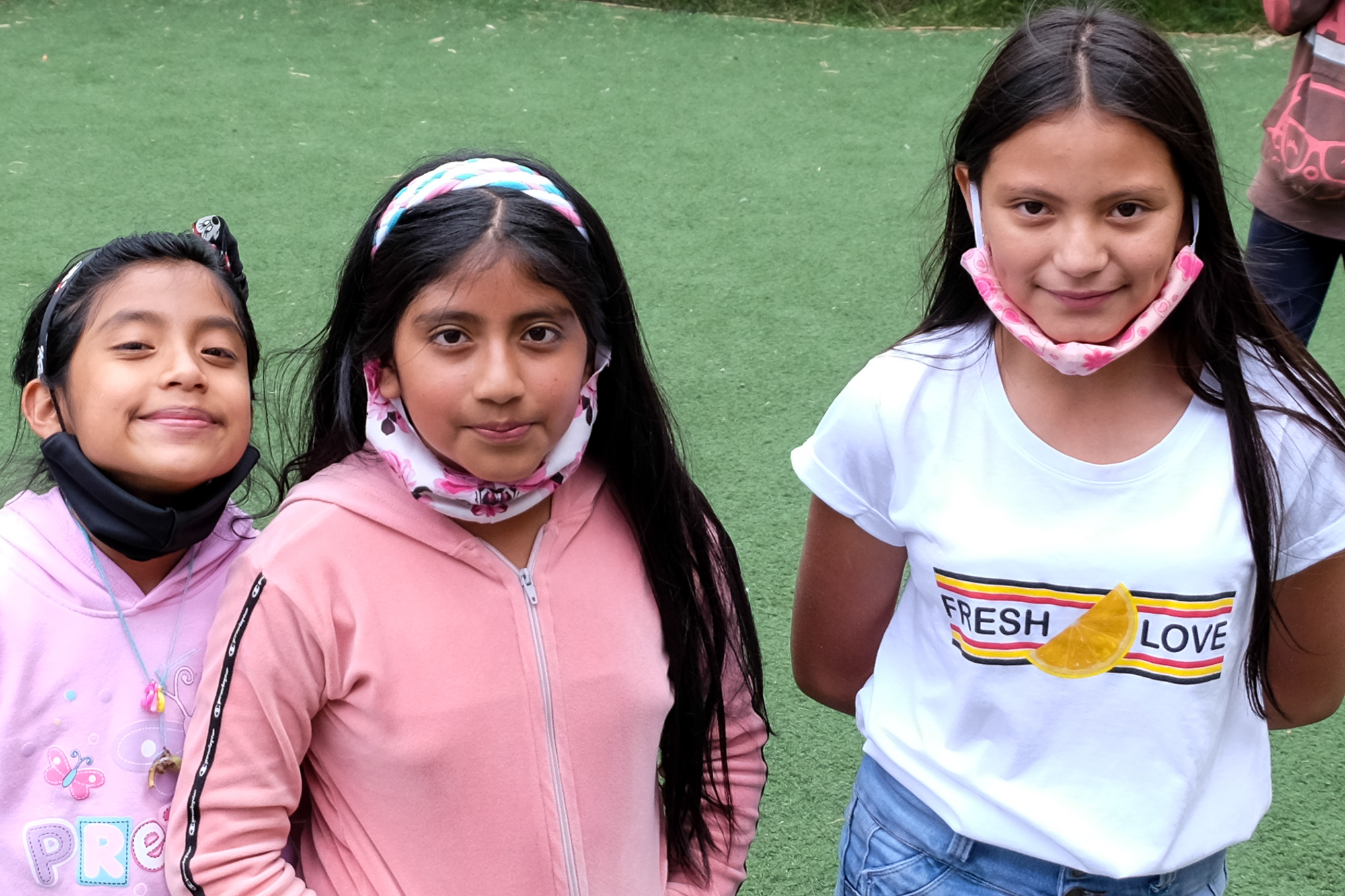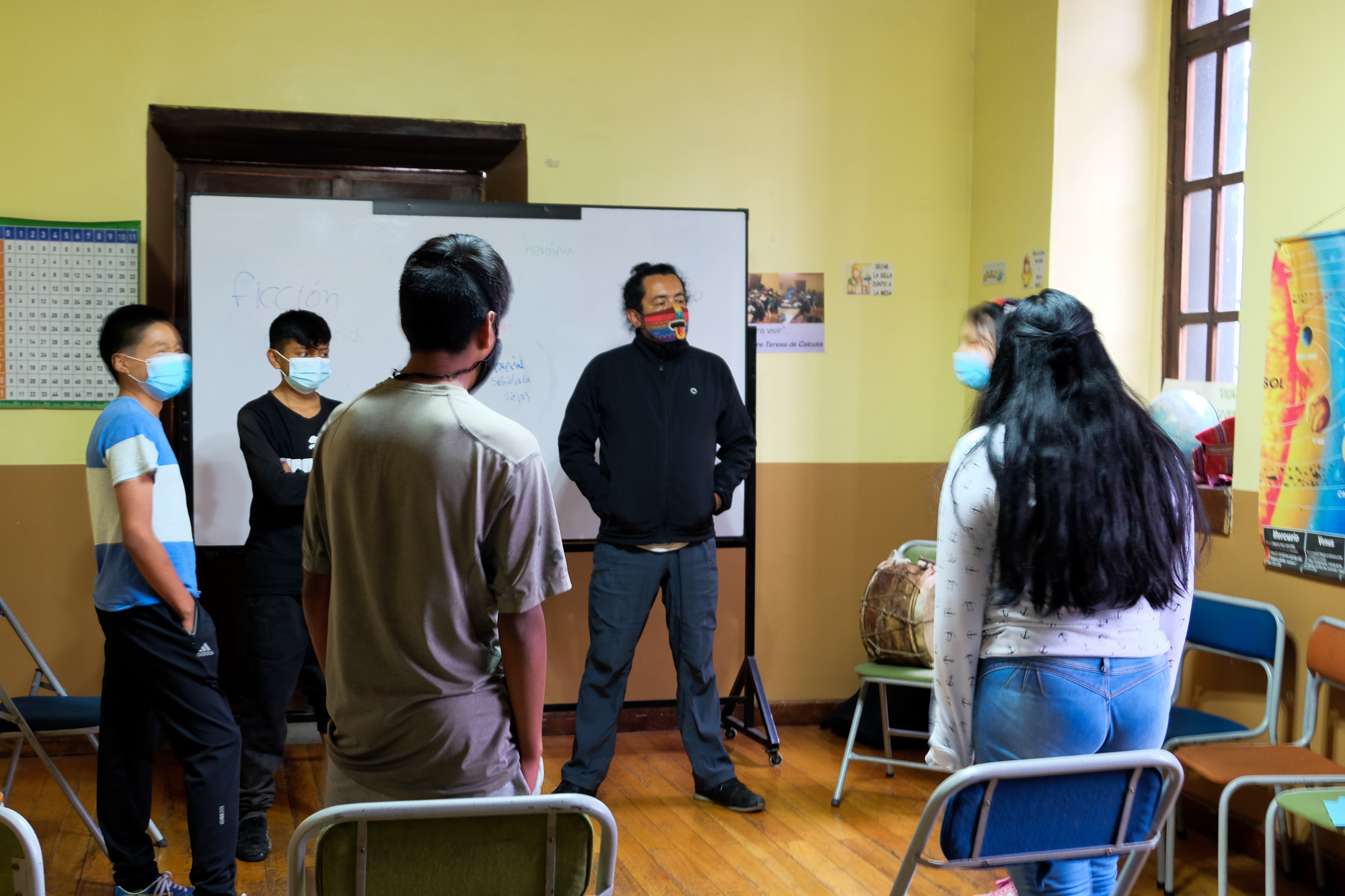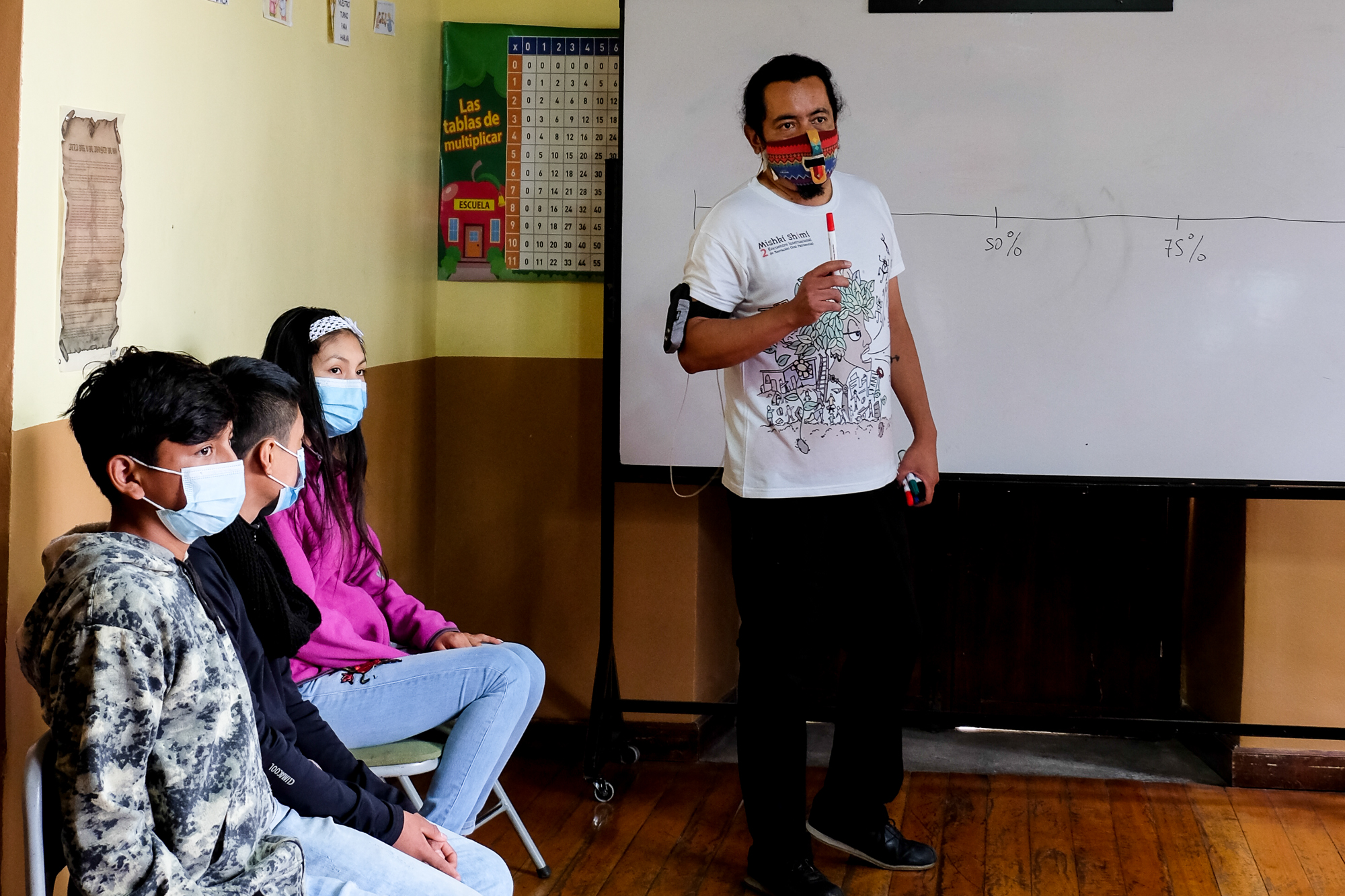Historias que sanan – stories that heal
A storytelling and resilience program with youth in Ecuador during the Covid-19 pandemic
Historias que sanan – stories that heal
A storytelling and resilience program with youth in Ecuador during the Covid-19 pandemic
Historias que Sanan was a collaborative program we launched in 2021 in partnership with Quito Eterno and Casa Victoria in Ecuador. The initiative integrated indigenous storytelling traditions with narrative therapy to help increase resilience among adolescents in neighborhoods across Quito during the challenges of the Covid-19 pandemic. Throughout the program, participants discovered the transformative power of their stories, finding strength and inspiration to take action, and experiencing significant gains in resilience.
What is the community’s story?
Long-time community leader Alicia Durán-Ballen and her team at Casa Victoria have served the low-income neighborhood of San Roque in Quito Ecuador for more than 15 years. Throughout our dynamic partnership with Alicia, we have supported processes of engaging with local families whose intersectional migrant and indigenous identities lead to painful experiences of systemic marginalization. This year, Alicia invited a local grassroots advocacy group, Quito Eterno, to join in creating a program for local adolescents during the pandemic, to both reflect on their own stories and to celebrate their ancestry.
In 2021, Brio collaborated with Casa Victoria and Quito Eterno to integrate these important aims with supportive narrative therapy practices. In addition to gathering input from the youth in Alicia’s community, we invited suggestions from local leaders as to what outcomes matter to them. “Make sure the community benefits, too,” one leader said. So as part of this process of developing their own narratives, participants also shared their family’s stories as a part of la narración comunitaria (community dialogue)— sharing both joy and sorrow during a difficult time, and how together they have overcome these challenges.




What was our partnership about?
Together with Ecuador-based organizations, Quito Eterno and Casa Victoria, we created Historias que Sanan: a program designed to enrich and support both individual and communal resilience during the Covid pandemic. The program was created and launched in 2021, with local adolescents joining in-person (limited according to protocols) and virtually.
Our partnership process began in the exploration and needs assessment phase, collaborating over many months to determine the skills and activities that would most cultivate connection among young people during the pandemic. After numerous interviews and design sessions, we identified a multi-pronged set of priorities to inform the content and direction of the program: increasing practices of personal storytelling, against the backdrop of celebrating indigenous culture and ancestry, increasing overall resilience in families and communities that have been traditionally marginalized and particularly affected by Covid.
What was the impact?
Program participants who were able to attend all sessions in person, despite local curfews, experienced an 11% increase in resilience as measured by a translated, contextualized version of the Connor-Davidson Resilience Scale. While we are thrilled to see these results, we also believe in expanding the definition of resilience beyond its traditional form of “bounce-back” and “adaptability,” to those expressed by our partners in the video.
In a context where many young people have few in-person spaces to share their own narratives, the program offered a space that valued their voices. Participants like Génesis shared about how the program helped her recognize the ways her own stories are important for guiding her pathway forward. “The stories we hold can heal us,” she said, “I learned so much about myself.”




What have we learned?
“I’m so glad the youth were able to come together, look inside themselves, and share with each other during this really difficult time in their lives,” said Alicia Durán Ballén, Casa Victoria’s Executive Director.
During a period of social distancing, extreme stress, and a widening of economic disparities, the program demonstrated that integrating traditional approaches to healing and liberation, along with modern practices, offered a meaningful pathway to healing. Coming together to tell stories is as old as humankind, and yet our partners created spaces with intentionality and acknowledgment of the young people’s current, unprecendented reality.
Storytelling is an intervention in its own right. Using personal stories, creative metaphors, and community stories, we can offer a way for young people to reimagine their relationship with their experiences— even as hardships continue.
